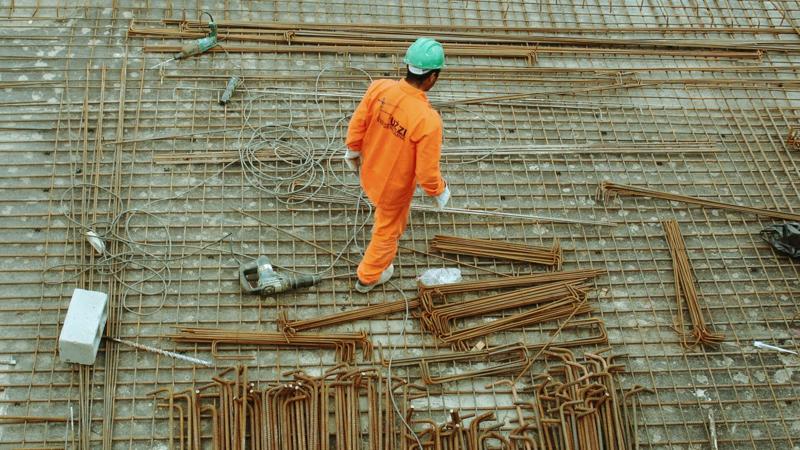(The Center Square) – The 2023 Permit Freedom Act has cut the time it takes to build in Arizona, according to a new Common Sense Institute report.
But despite the state law, it still takes a long time to go through the regulatory process, the nonpartisan research organization said.
The CSI, which released its report Wednesday, describes PFA as limiting “the scope and length of regulatory review for housing permits.” Since it became law, the institute found a reduction in times for builders’ permits and development between 7.1% and 17.7%.
But the CSI also found it takes more than 300 days for new housing projects to get their permitting, development and final inspection complete. To determine this, the CSI gathered around 100,000 permit applications from seven cities in Arizona over the last five years.
One approval process that became quicker under PFA is residential building permits. The CSI report showed that across the seven jurisdictions, these permits took 126 days to complete at the end of 2024. In 2022, it took 200 days.
This marks a decrease of 74 days.
CSI doesn’t attribute this drop solely to the Permit Freedom Act, said Glenn Farley, the institute’s director of policy and research.
Many cities have made efforts to reform their regulatory rules to “speed up the housing pipeline,” Farley told The Center Square.
However, he said there is still an impact from the PFA that caused this decrease. He said PFA took two steps to reduce the number of days required to obtain residential building permits.
The first was to cap the time cities could take to review permits before making a decision. The second was to limit the scope of their reviews.
Despite these improvements in residential building permit approval time, Farley said house building is below the level from three years ago.
In March 2022, Arizona issued 6,875 residential building permits. Between 2023 and 2024, the closest a month got to this was in September 2023, when 6,340 permits were issued for building.
In August 2024, the number of these permits was 5,043.
But the CSI report estimated that in 10 years, the PFA will result in approximately 3,800 additional housing units annually. Also, this piece of legislation is expected to result in a 5% decline in Arizona home prices.
Moreover, CSI estimated a potential 25% reduction in permitting and vertical development times by 2035 would lead to almost 50,000 new jobs, an 11% decrease in housing prices and nearly 100,000 new homes.
The institute’s report also compared the state’s housing market in 2022 to 2006.
The 2006 housing market was just before the Great Recession in 2007-09. Farley said it was the last time Arizona housing prices peaked before they surged in 2022.
There were two main differences between these times, the policy and research director said.
One difference is prices in 2022 increased much faster than they had before the Great Recession, Farley said.
Home prices in Phoenix climbed between 2020 and 2022.
According to Zillow, the average home price in Phoenix in July 2020 was $289,424. Two years later, that price skyrocketed to $460,550. This marks a 59% increase in home prices.
Farley said it took between four and six years for home prices to increase 40% before the Great Recession.
The other difference, Farley explained, is home prices during the Great Recession followed historical trends and subsequently declined. However, after the surge in home prices in 2022, prices did not come down.
Farley described current home costs as “flattening out.” As of April 2025, the average home in Phoenix costs $422,080. Currently, the primary driving force of Phoenix’s inflation is its housing costs.
The policy and research director said that due to there not being a correction in housing prices, the current housing market is worse than the Great Recession’s housing bubble.
“ We now have both problems. We have very high interest rates relative to where they were in 2020, but we also have very high housing prices relative to where they were in 2020, and neither are showing signs of coming down,” he explained. “That’s why the supply problem is so important.”
CSI noted Home Builders Association of Central Arizona said obtaining approval through the regulatory process to build a home in Phoenix took two years before the pandemic. Nowadays, it takes between four and five years.
CSI estimated that one-third of the cost of a new $300,000 starter home is due to regulatory compliance.
Spencer Kamps, the HBACA’s vice president of legislative affairs, told The Center Square that the PFA has helped at the local level in terms of permit timeframes and approvals.
Builders typically need to obtain around 40 to 50 permits for every subdivision, Kamps said.
He described the permit process for builders in Arizona as “cumbersome” and “very difficult.” He said this process adds to the costs of home building, which are eventually passed on to homeowners.
Kamps said it is not uncommon for members of his association to have to remarket their product and subdivision to a whole new buyer due to the additional costs that occur when going through a city approval process.






